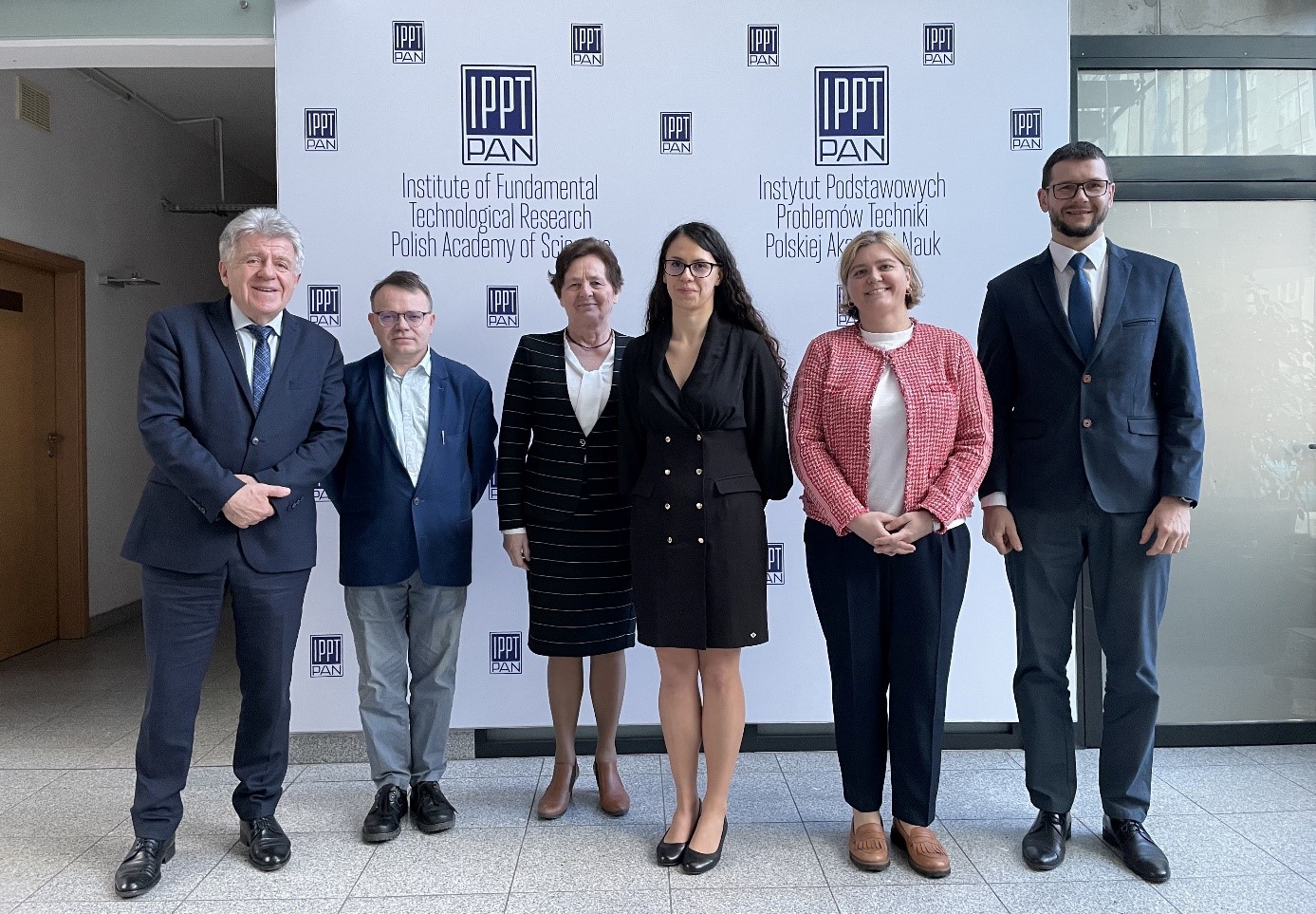On 30 March 2023, according to the resolution of the Scientific Council of IPPT PAN, Aneta Antolik was awarded the degree of Doctor of Science in the field of Engineering and Technical Sciences in the discipline of Materials Engineering.
Influence of de-icing agents on the microstructure and threat of alkali-silica reaction in granite aggregate in pavement concrete
This dissertation concerns the phenomenon of the destruction of highway and airfield concrete pavements in Poland as a result of alkali-silica reaction (ASR) of granite aggregate in the presence of de-icing agents. The aim of this paper was to determine the alkaline reactivity in the presence of de-icing agents of commonly used in concrete pavements granite aggregates and to analyze the effect of these agents on the course of the reaction. The main theses of the dissertation concern the recognition of domestic granite aggregates in terms of their susceptibility to ASR in the presence of de-icing agents, the relationship between the content of reactive minerals in the aggregate and its susceptibility to ASR, and the relationship between the composition of alkali-silica gel and the expansion of concrete under simulated environmental conditions.
The work summarizes the state of knowledge of the mechanisms and factors determining the alkali-silica reaction. The concrete used for road and airport pavements was characterized in terms of resistance to ASR. The dissertation presents the results of the research carried out to date with regard to the alkaline reactivity of granite aggregates in Poland and abroad. The available research results on the influence of de-icing agents on the durability of concrete were analyzed, with particular emphasis on the alkali-silica reaction.
To prove the validity of the theses, it was necessary to conduct laboratory tests, using selected materials and appropriate research methods (including the development of a new, original methodology). The research included detailed examination of aggregates (petrographic composition on thin sections, XRD, XRF), mortars and concretes (expansion measurements and microstructure on sections using SEM with analysis in micro-areas). The main part of the dissertation was to develop a methodology for the quantitative analysis of reactive minerals in aggregates, to determine the susceptibility of granite aggregates from domestic deposits to the alkali-silica reaction, and to examine the combined effects of variable humidity conditions and various concentrations of de-icing agents (NaCl, HCOONa, HCOOK) on the possibility of occurrence of the alkali-silica reaction in this aggregate in pavement concrete. The quantitative results of the analysis of reactive minerals in the aggregate grains and the results of laboratory tests on concrete expansion formed the basis for finding a correlation between aggregate reactivity and the resistance of the concrete to ASR.
The results of the research confirmed the validity of the dissertation's theses, which were presented in the conclusions. It has been found that granite aggregates from domestic deposits are susceptible to the occurrence of alkali-silica reaction, especially in the presence of de-icing agents. The relationship between the content of deformed quartz in granite aggregate and the susceptibility to ASR reaction was demonstrated. Effect of de-icing agents on acceleration of ASR in pavement concrete was observed. The extent of the expansion of concrete with granite aggregate was found to be related to the composition of the ASR gel in the cracked aggregate grains in simulated operating conditions, which was an indirect proof of the penetration of de-icing agents into the concrete. The usefulness of original methods of material characterization in terms of susceptibility and occurrence of ASR in real pavement structures was also confirmed.

From left to right: prof. Jan Deja from AGH University of Science and Technology in Kraków, prof. Piotr Woyciechowski from Warsaw University of Technology, prof. Zdzisława Owsiak from Kielce University of Technology and Aneta Antolik, PhD from IPPT PAN, prof. Daria Jóźwiak-Niedźwiedzka, Mariusz Dąbrowski, PhD from IPPT PAN

















